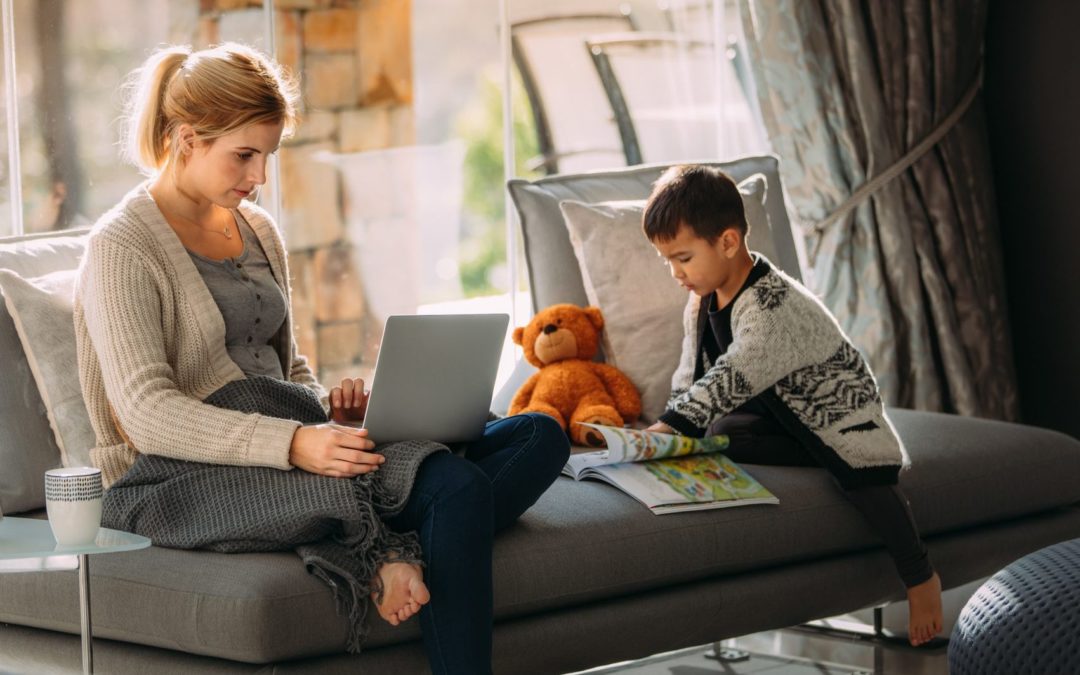It begins when I open my eyes in the morning. A slight heaviness settles on my chest, keeping me under the covers for a few more minutes. It takes effort, but I get up and stagger through my morning routine as if it were a normal day. I make a hot cup of coffee and the warm liquid offers a temporary reprieve. But the heaviness stays with me, like a fog obscuring my next move. My teens are still asleep, depleted from the disruption of their daily routines, and enduring a social isolation that leaves them weary and despondent. My husband will attempt to ensure regular meals and withdraw into his online habitat, seeking elusive productivity.
I step outside into a perfect, blue-sky day that is disorienting and oddly out of alignment with the times. It should be overcast and raining, to match my melancholy mood. Driving to work, I see eerily empty streets; a reminder of the real threat that consumes us. I turn on my computer and close my eyes. My stress is not special; though it is uniquely mine. I breathe, releasing it temporarily. To my online clients, I am a lifeline, a connection, a source of strength for intense parent-child conflicts, made worse with unremitting tension and anxiety. To be present, to be useful, to be supportive to others allows me to fight off the dread and worry that persistently creep into the interstitial moments of my day.
The day passes, and I wonder if I’m doing enough, if I’m really “essential,” if I’m making a difference, when the need is all-consuming and ever-present; demanding more from us, while restricting our vital networks of support. Young children are confused by our reluctance or inability to engage. Our lives are being rewritten without permission. We feel trapped, and this makes us reactive, not proactive. Parenting is already a journey into the unknown, rife with complexity and woefully lacking instructions. Uncertainty and apprehension may undermine our parental instincts, clouding our judgment and increasing our feelings of vulnerability. We may escalate, unintentionally, desperate for some semblance of control. Yet we constantly feel ineffective with our children, our partners, and the pandemic circulating outside our door.
I finish a consultation and the computer idles while I write. My families struggle, yet they seek authentic connection and encouragement, a type of electronic sustenance that I can provide. Easing their struggle eases mine and, for the first time today, I feel lighter.
We are all living with stress. It conceals itself, until it emerges, seeping into our lives in subtle, stealthy ways. Some ignore or fight it, yet it is relentless and pervasive. Others yield to it, acknowledging its presence as an inescapable shadow. I go to work and reach out virtually to connect, give and receive support, and remind parents that although you are physically isolated, you are not alone. I’m here, waiting.
Heidi Emberling, EdD is the Director of Parents Place and does individual consultations for families with young children, birth through elementary school. She also teaches workshops on a wide variety of topics, including managing challenging behaviors, positive discipline, toilet learning, sleeping issues, understanding temperament, social and emotional development, and sibling/peer relationships. Schedule a parent consultation and ask for Heidi.
The Center for Children and Youth is here to help you navigate the challenges your family is facing today. Our professional staff can help you create an individualized parenting plan and evaluate choices with the unique needs of your family in mind. If you or your child is struggling with the stress of the pandemic, we are here for you. Learn more.

